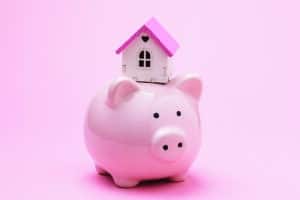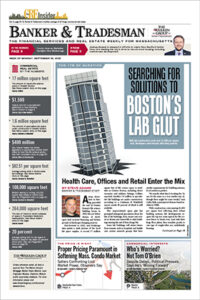As prices continue to rise, starter homes are more in demand across the nation, including in Greater Boston.
Starter home sales in the Boston metro area increased by 7.6 percent year-over-year, according to a new analysis from economists at brokerage Redfin. Additionally, active listings in that category increased by 20.10 percent and numbers of new listings were up 4.7 percent on the same basis.
Redfin’s research defined a “starter home” as “homes whose sale price fell into the 5th-35th percentile” in each market its staff examined.
“Starter homes are holding up better than other price points because they’re the most attainable option in a market where affordability is still stretched,” Redfin Senior Economist Sheharyar Bokhari said in a statement. “First-time buyers and downsizers alike are competing for the same pool of smaller, less expensive homes, which is keeping demand relatively strong even as higher tiers remain sluggish. For many households, stretching into the mid-tier isn’t feasible with high prices and elevated mortgage rates.”
While the median price of a starter home in Greater Boston is relatively inexpensive compared to the higher end of the market, such homes are still quite expensive compared to the region’s median income. The average starter home costs $518,319, a 5.4 percent increase year-over-year.
Among the 50 most populous U.S. metros, the median price is the ninth-most expensive in the nation and would only be affordable to a household making around $140,000 or $150,000 per year, assuming a typical 5 percent down payment and a 6.3 percent mortgage rate, the current average on 30-year loans according to Freddie Mac.
The median income for Greater Boston households headed by someone between ages 15 and 24 was $70,940 last year, according to the Census Bureau, and $138,019 for those headed by someone between ages 25 and 44.
“Starter home prices have climbed so much over the last decade that even with mortgage rates coming down from their peak, affordability is still a huge hurdle,” Redfin Premier real estate agent David Palmer said. “At the same time, buyers who already own a home have more leverage—they can use the equity they’ve built to make stronger offers. That means entry-level buyers are often losing out to move-up buyers who have deeper pockets.”
Starter-home sales across the nation grew 3.8 percent year over year. In comparison, sales of mid-price homes fell 0.6 percent year over year, while high-price homes fell 1.2 percent. Additionally, the typical U.S. starter home sold for a record $260,508 in August, rising 2.2 percent year-over-year.
Among the 50 most populous U.S. metros, Providence, Rhode Island, saw the greatest increase in starter home sales. Year-over-year starter home sales increased by 25.3 percent.






